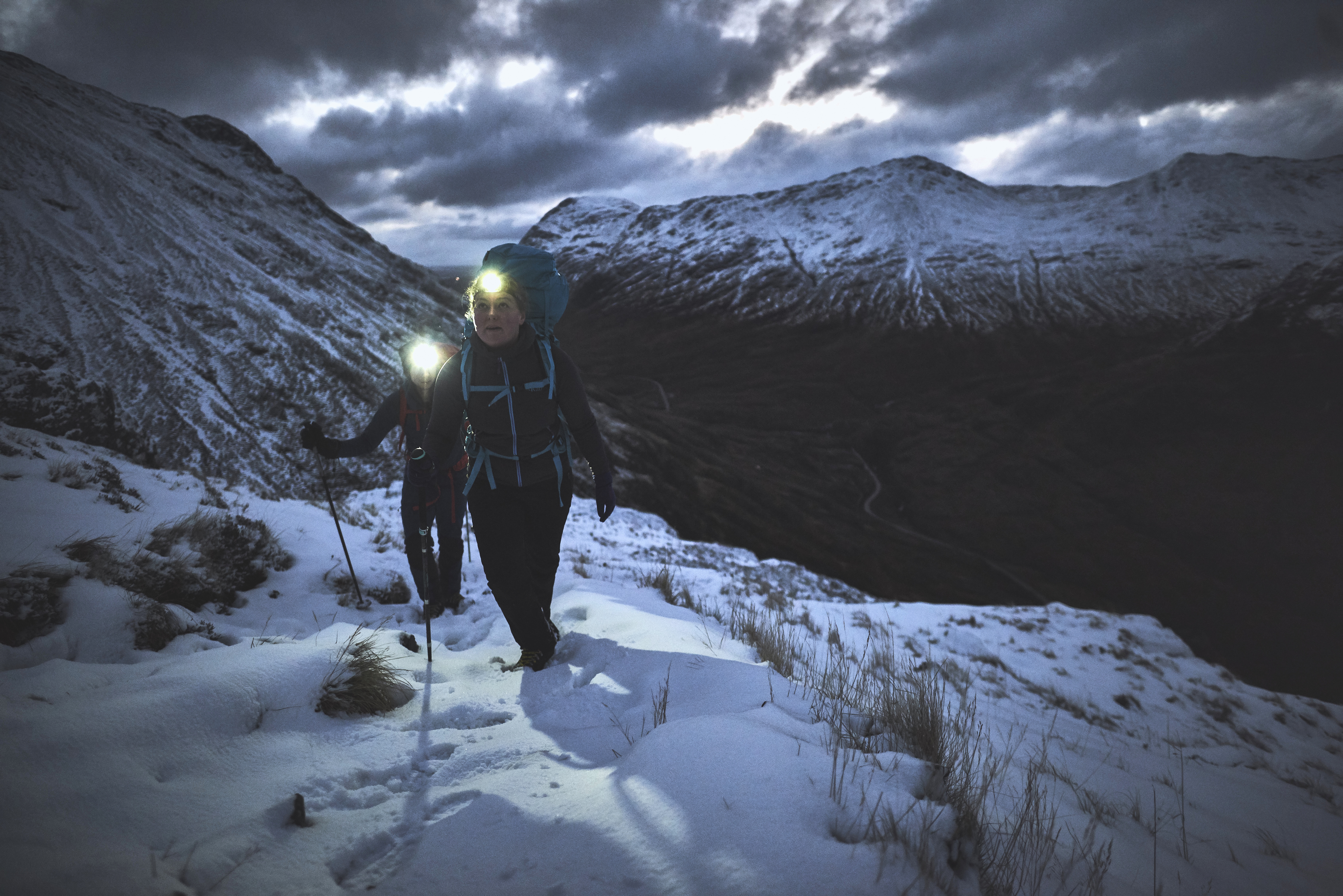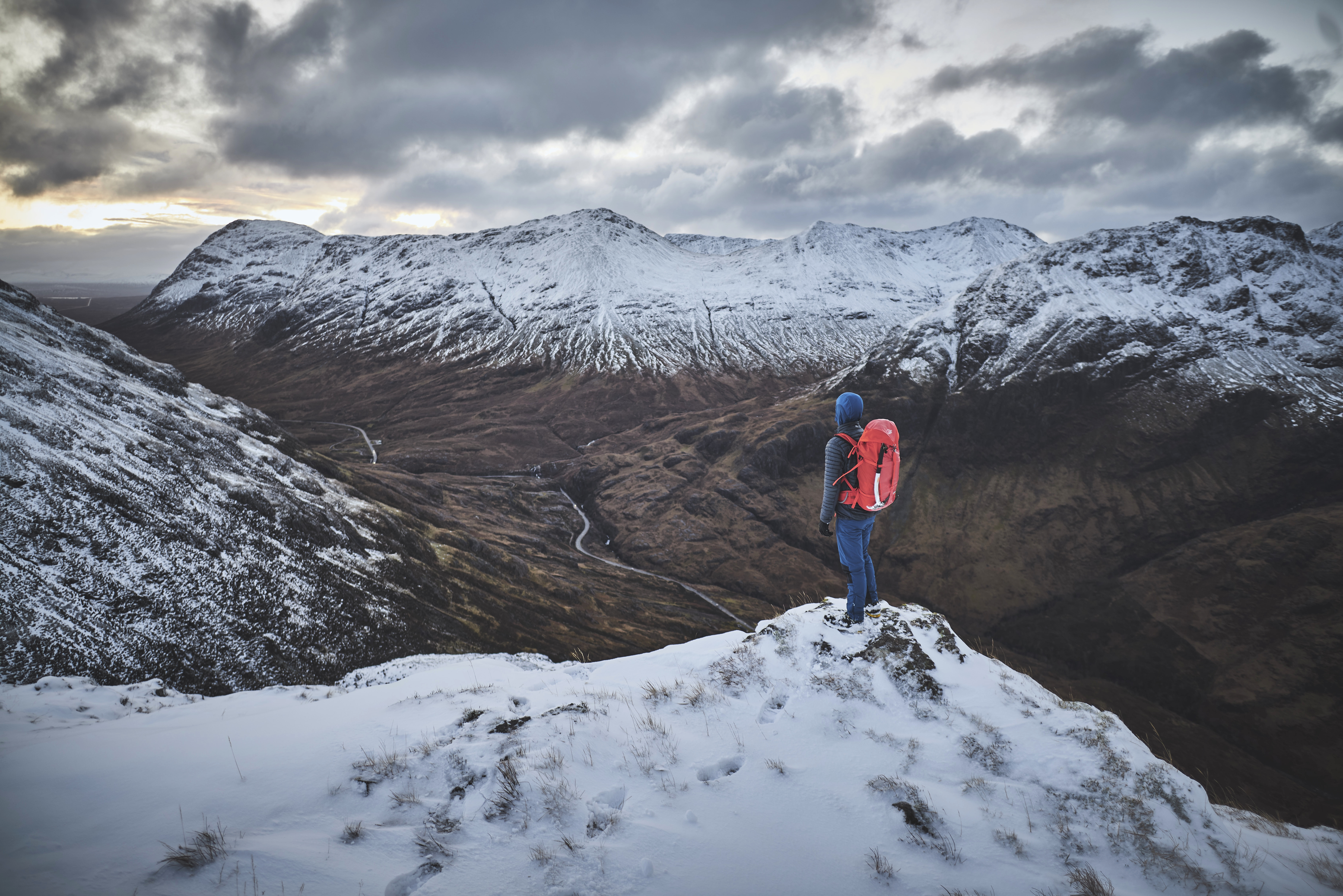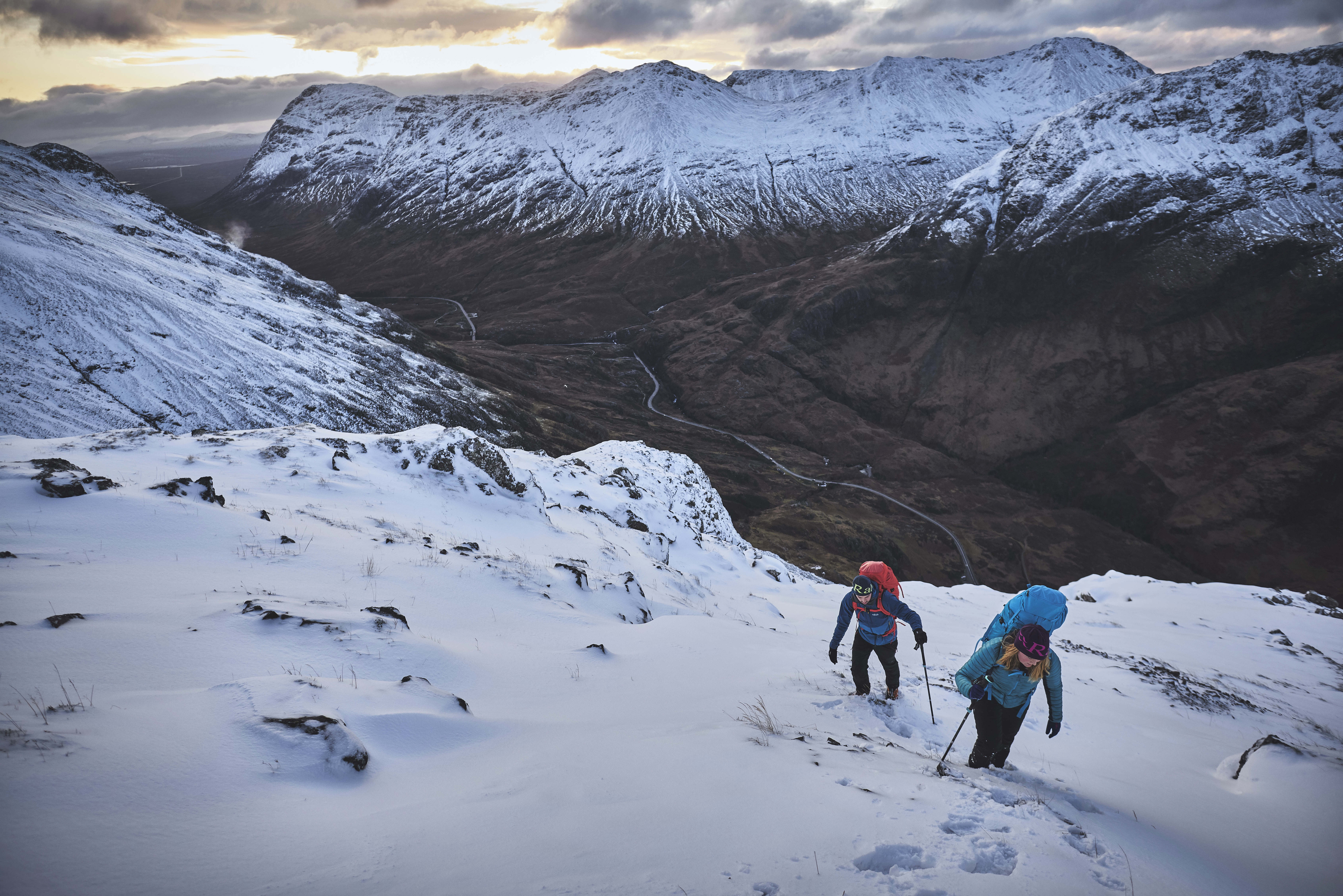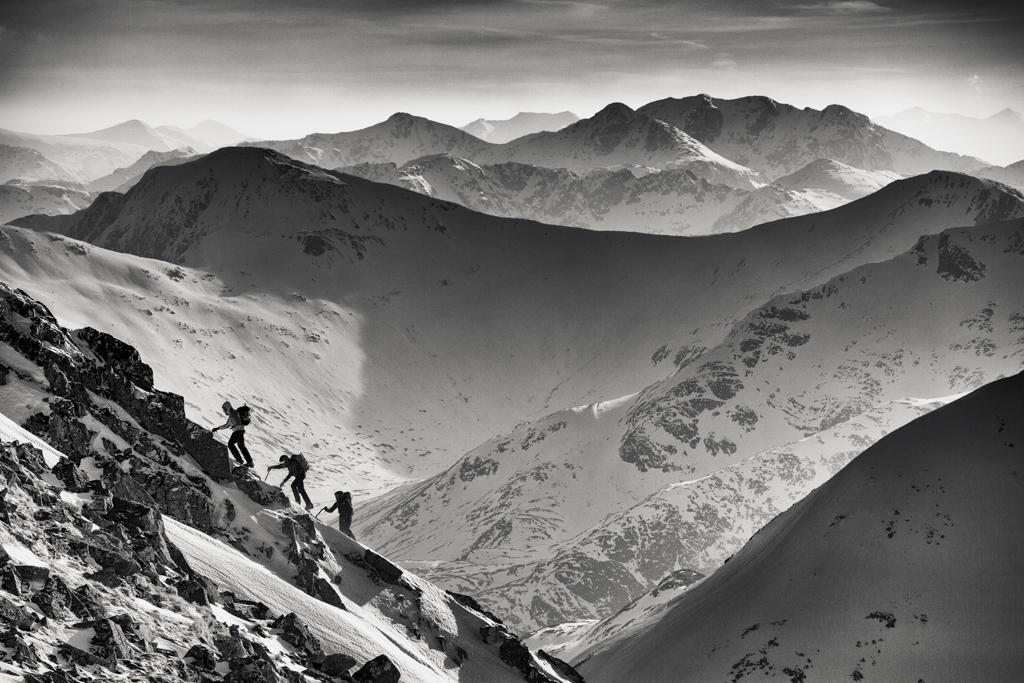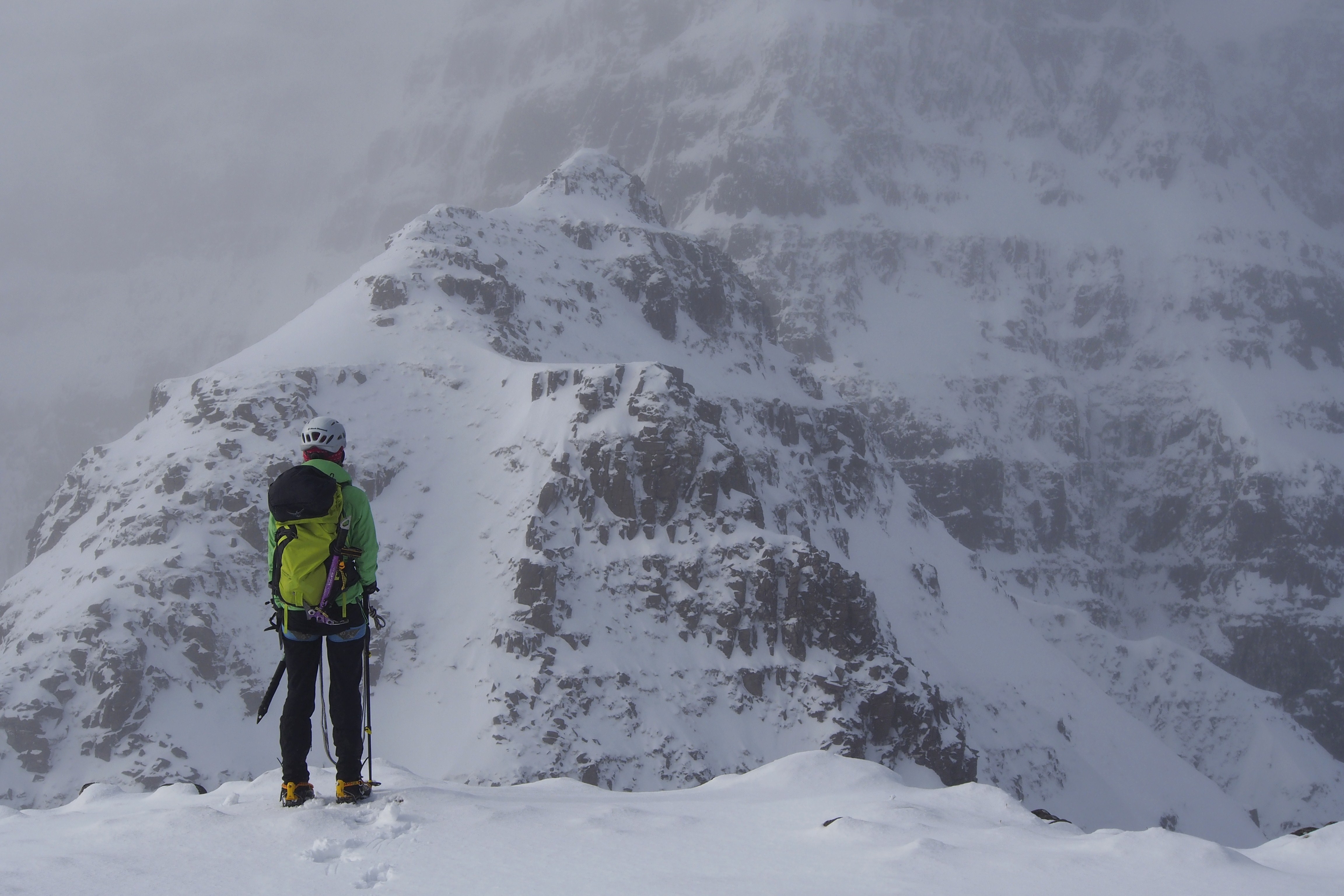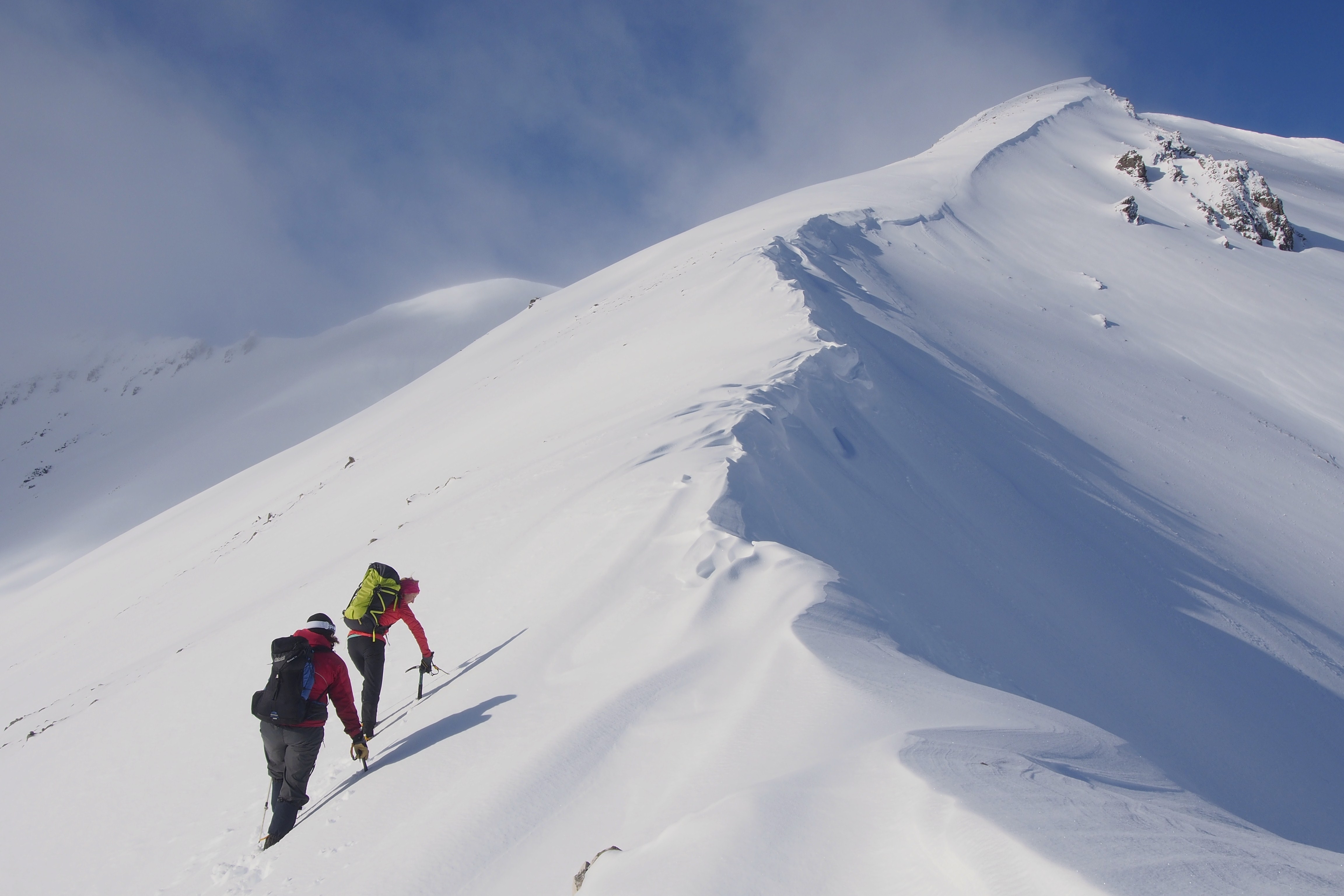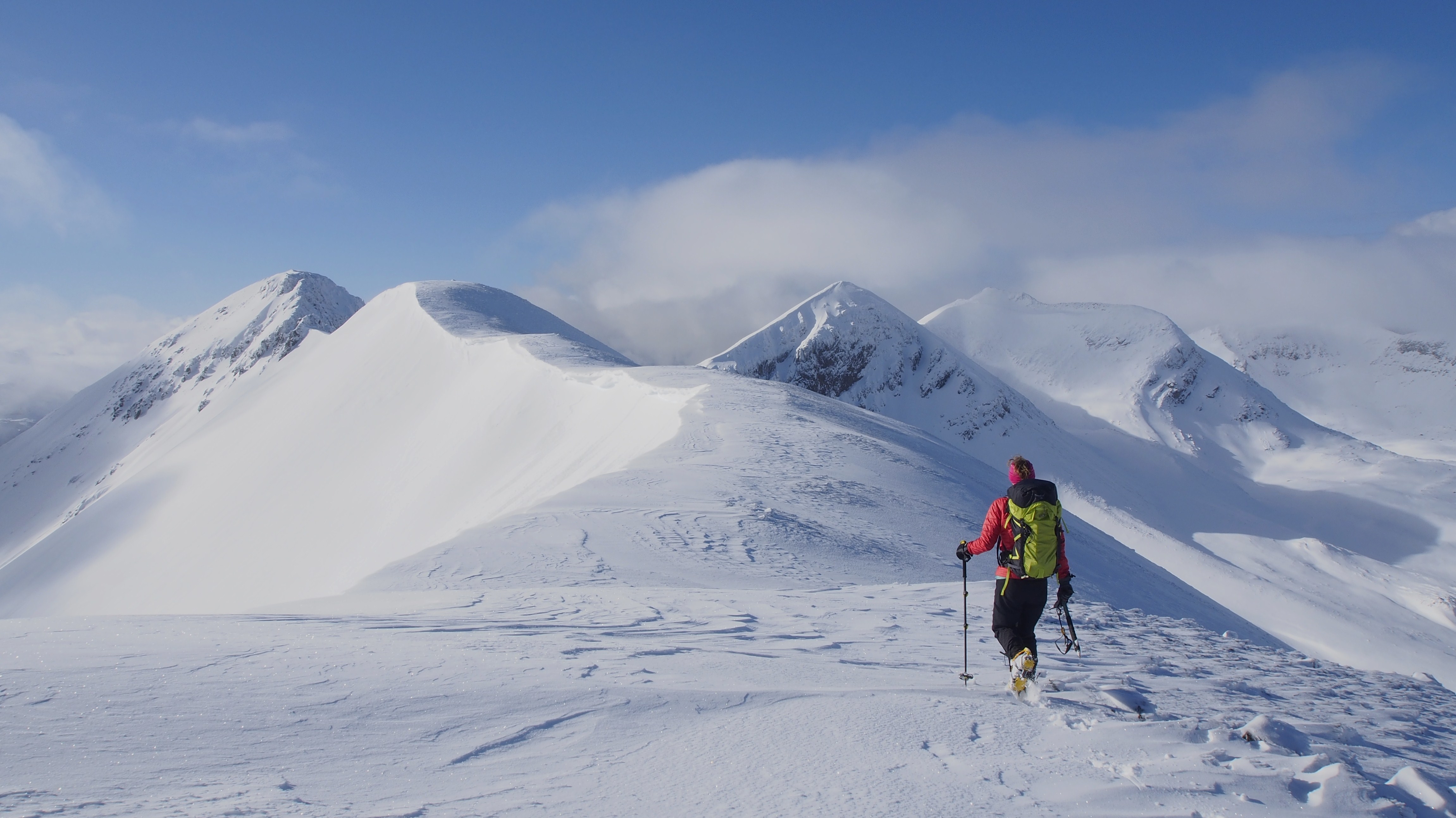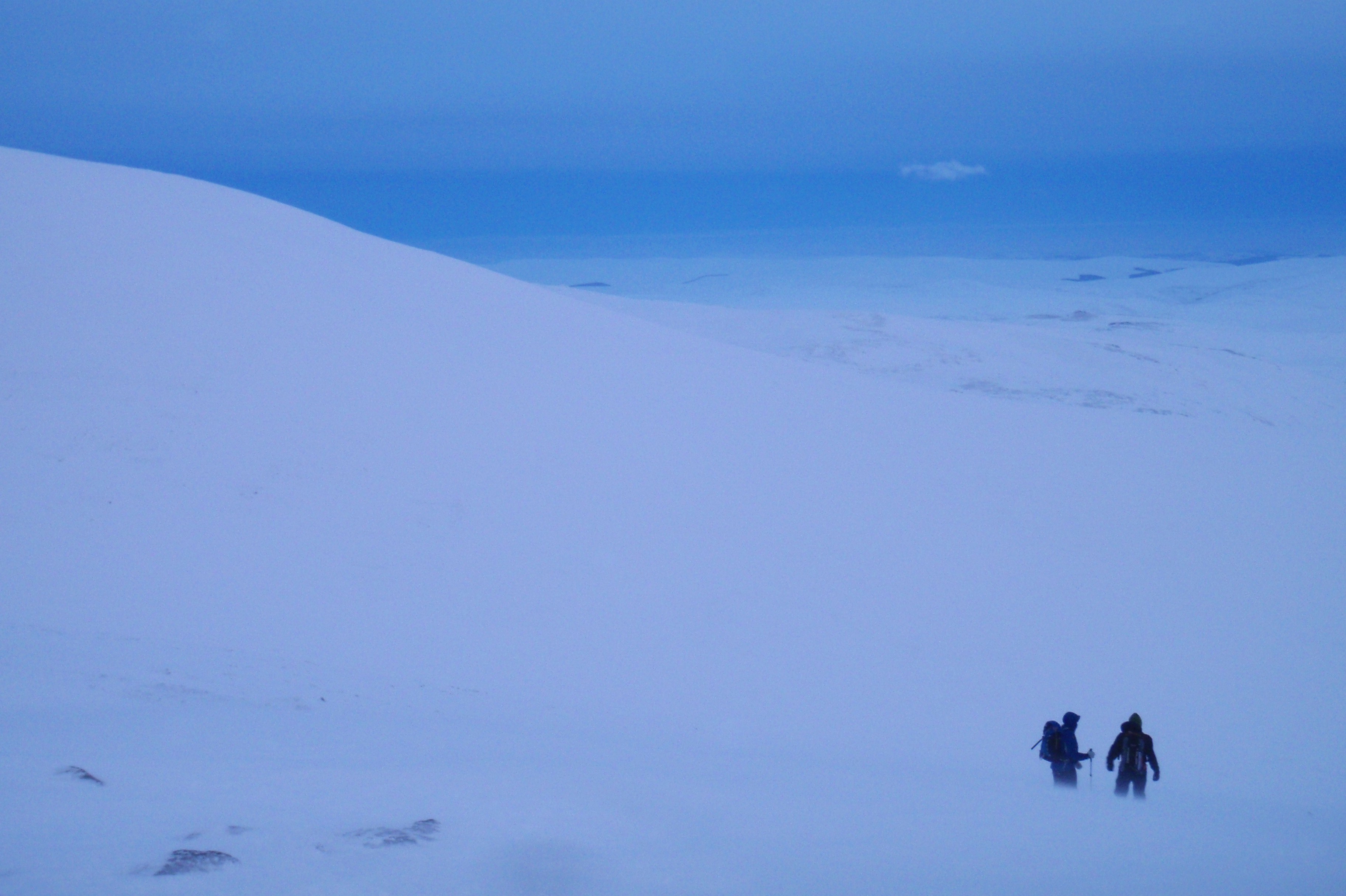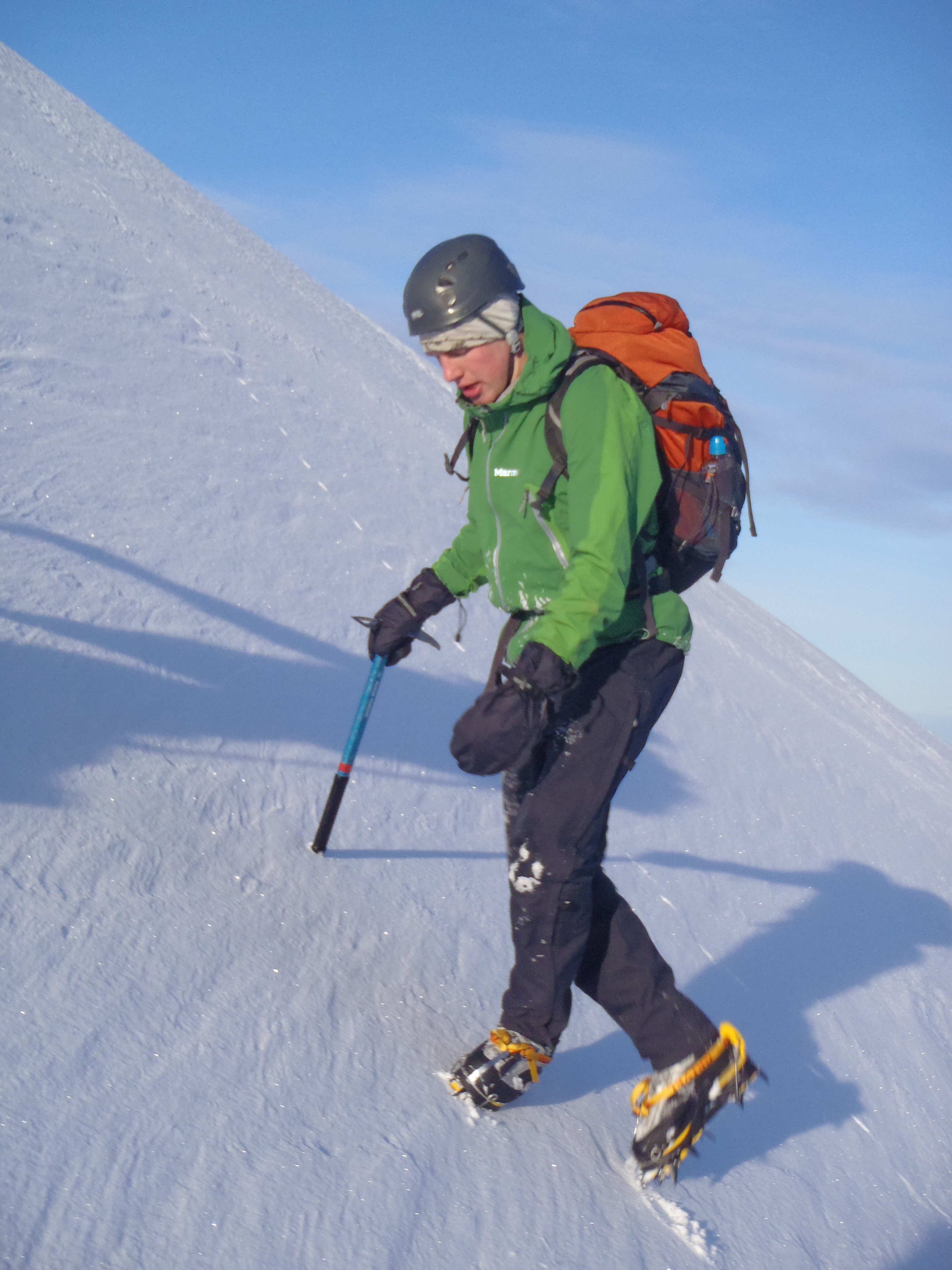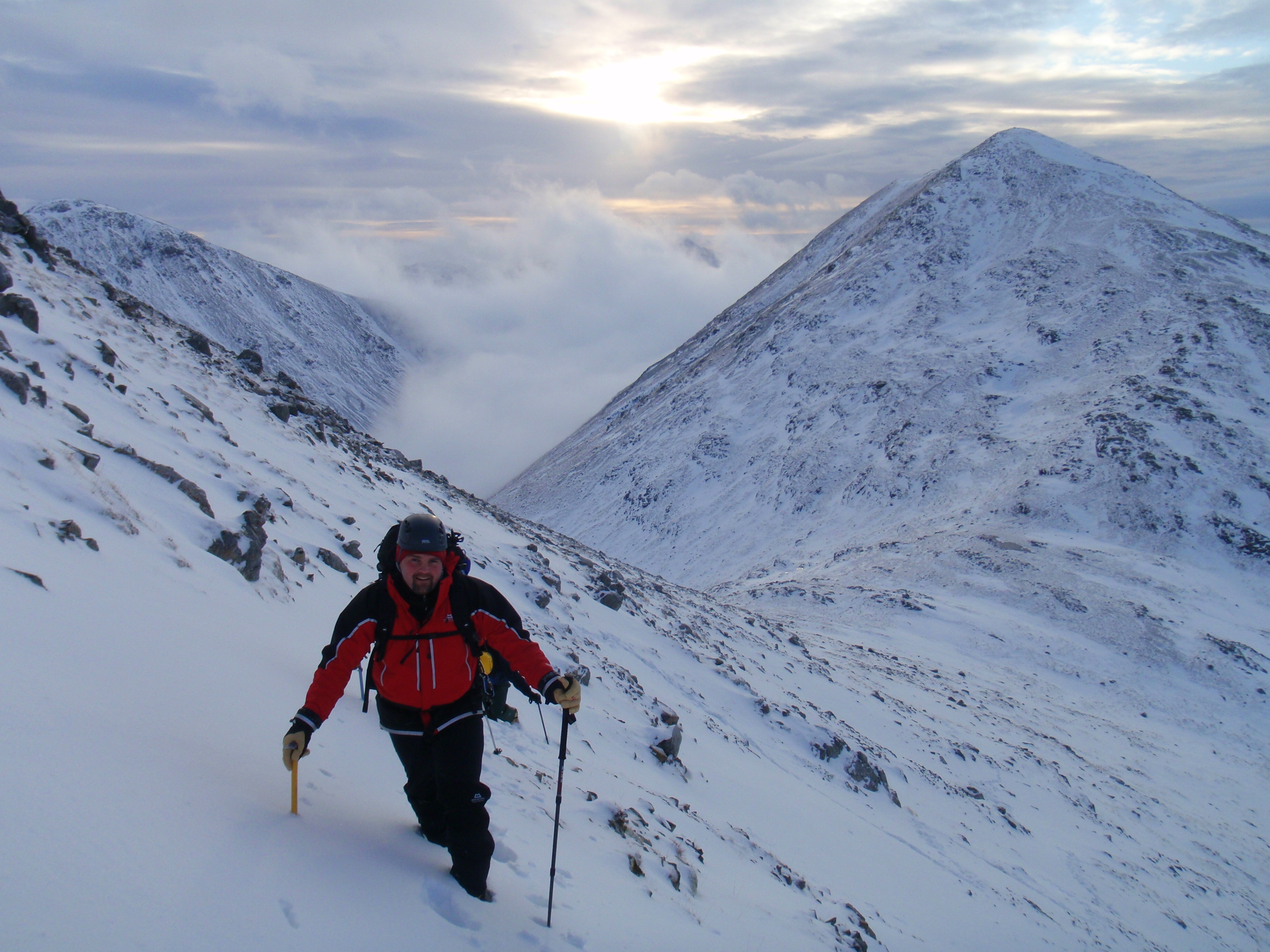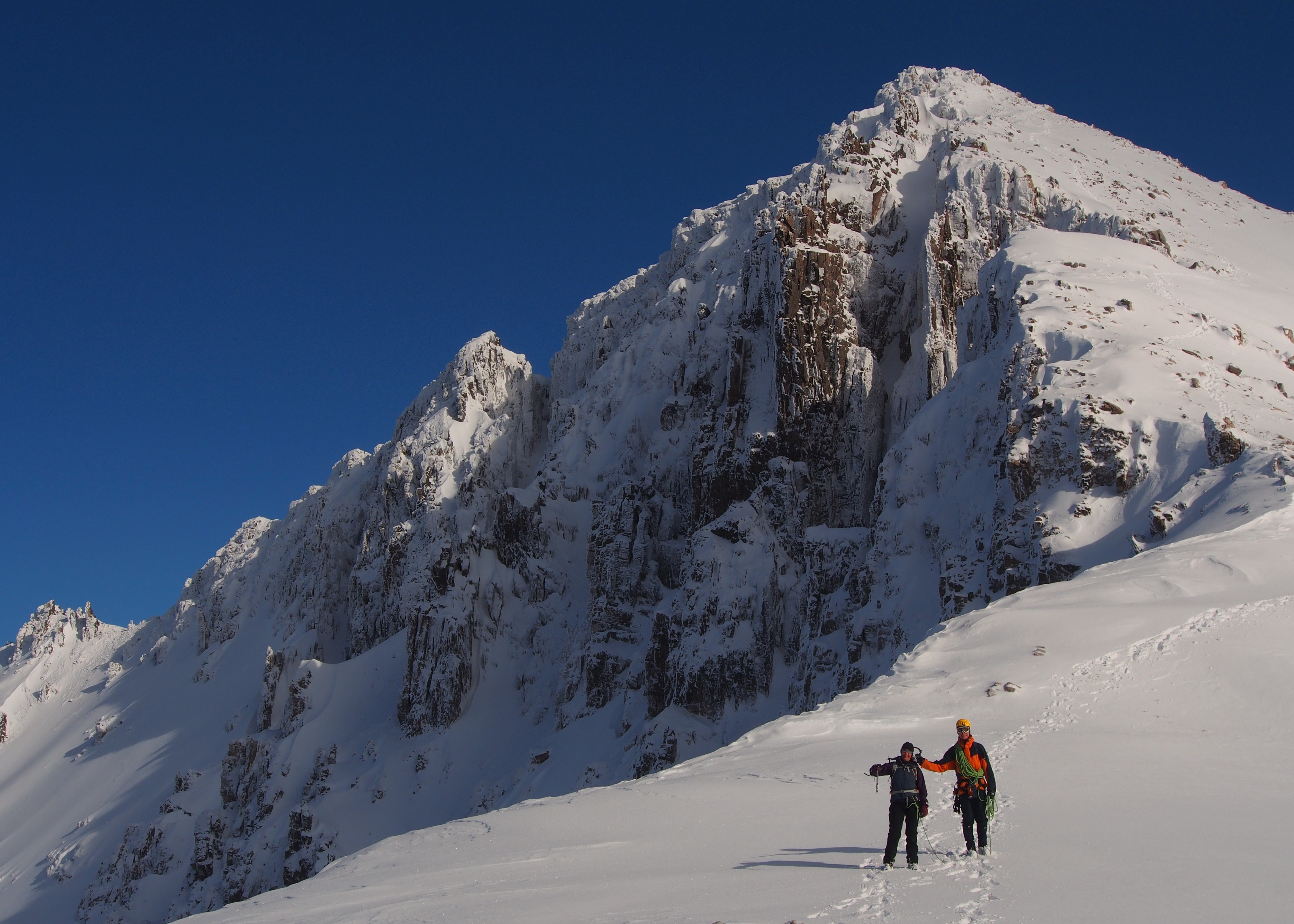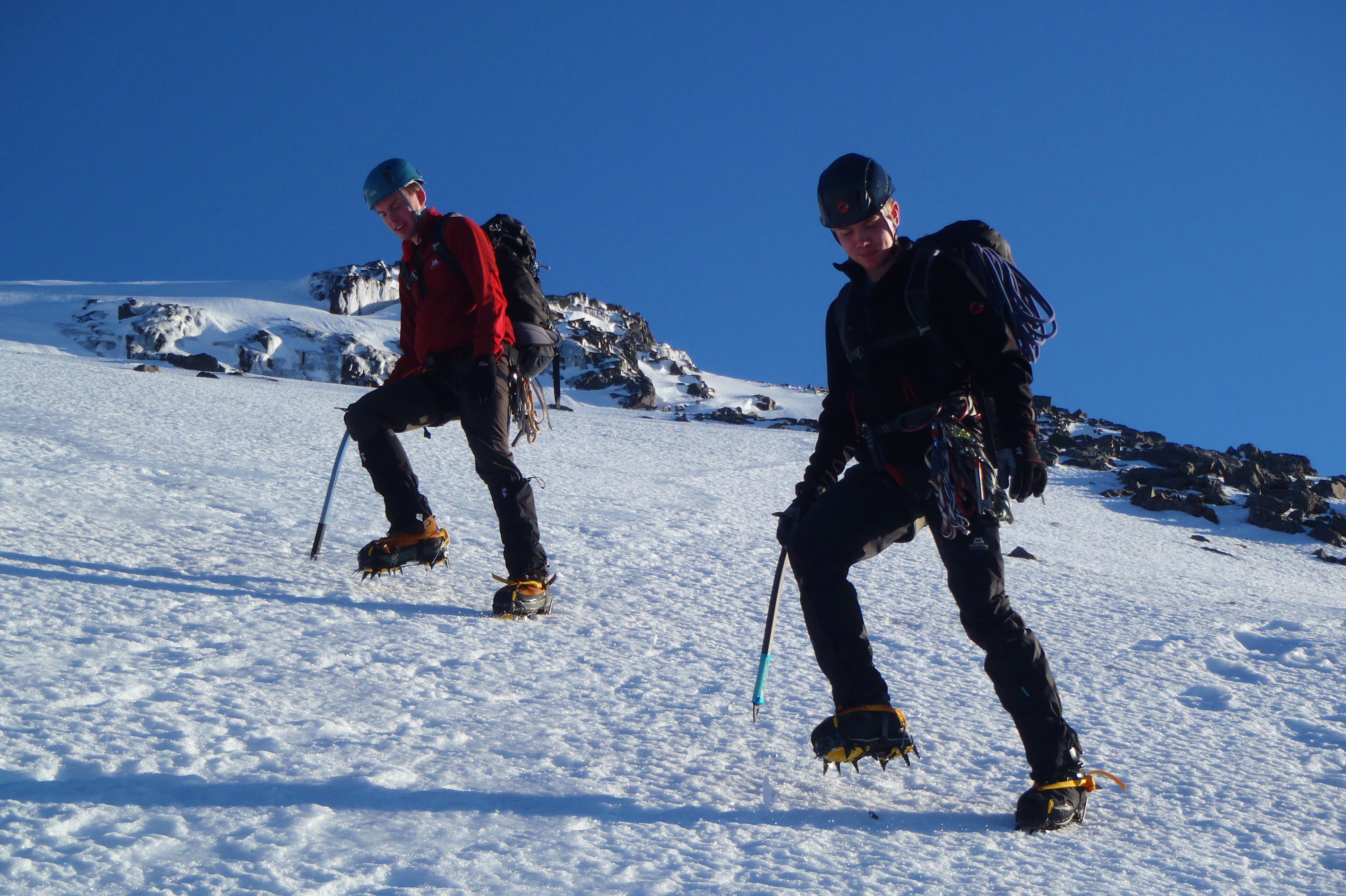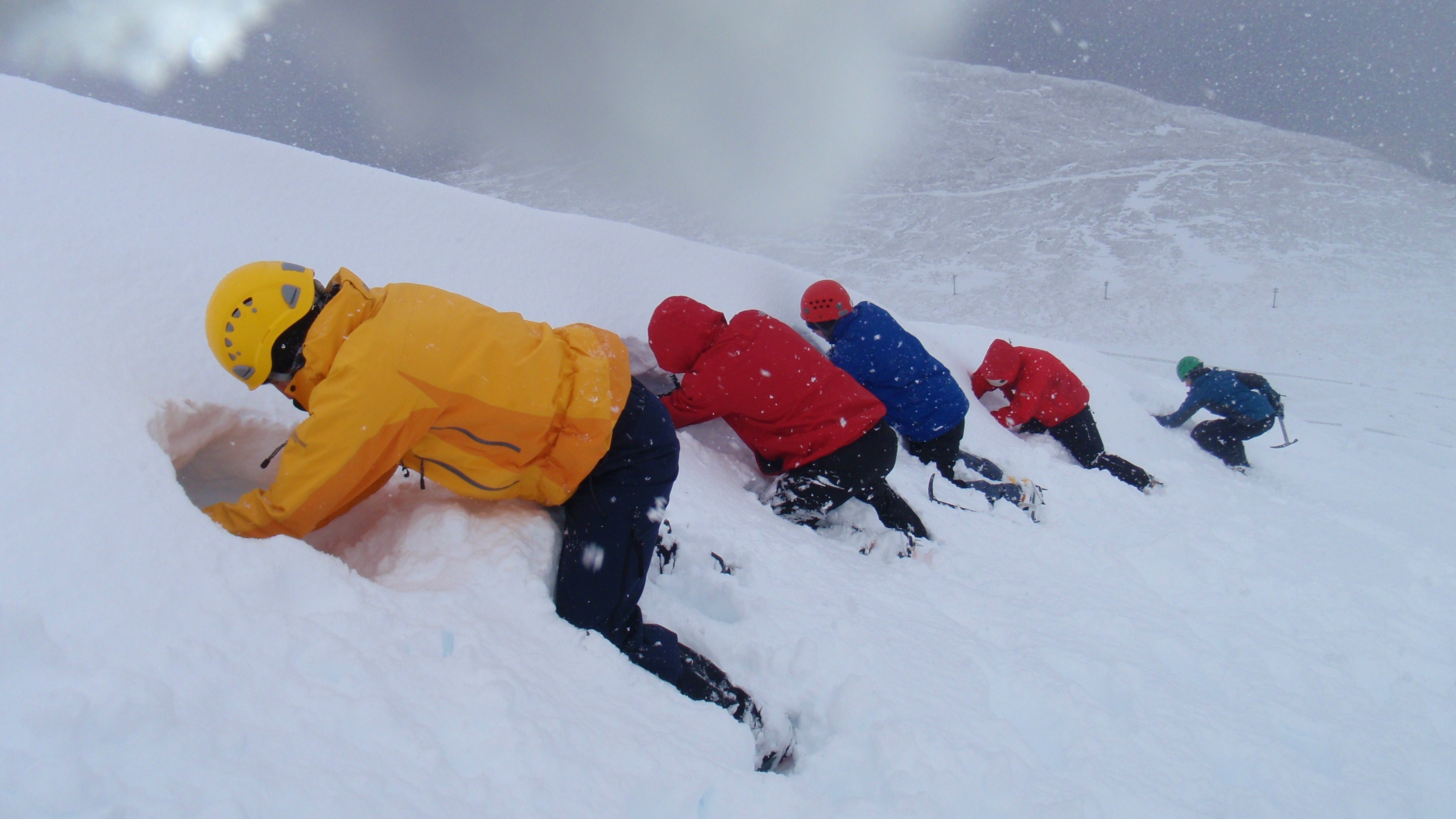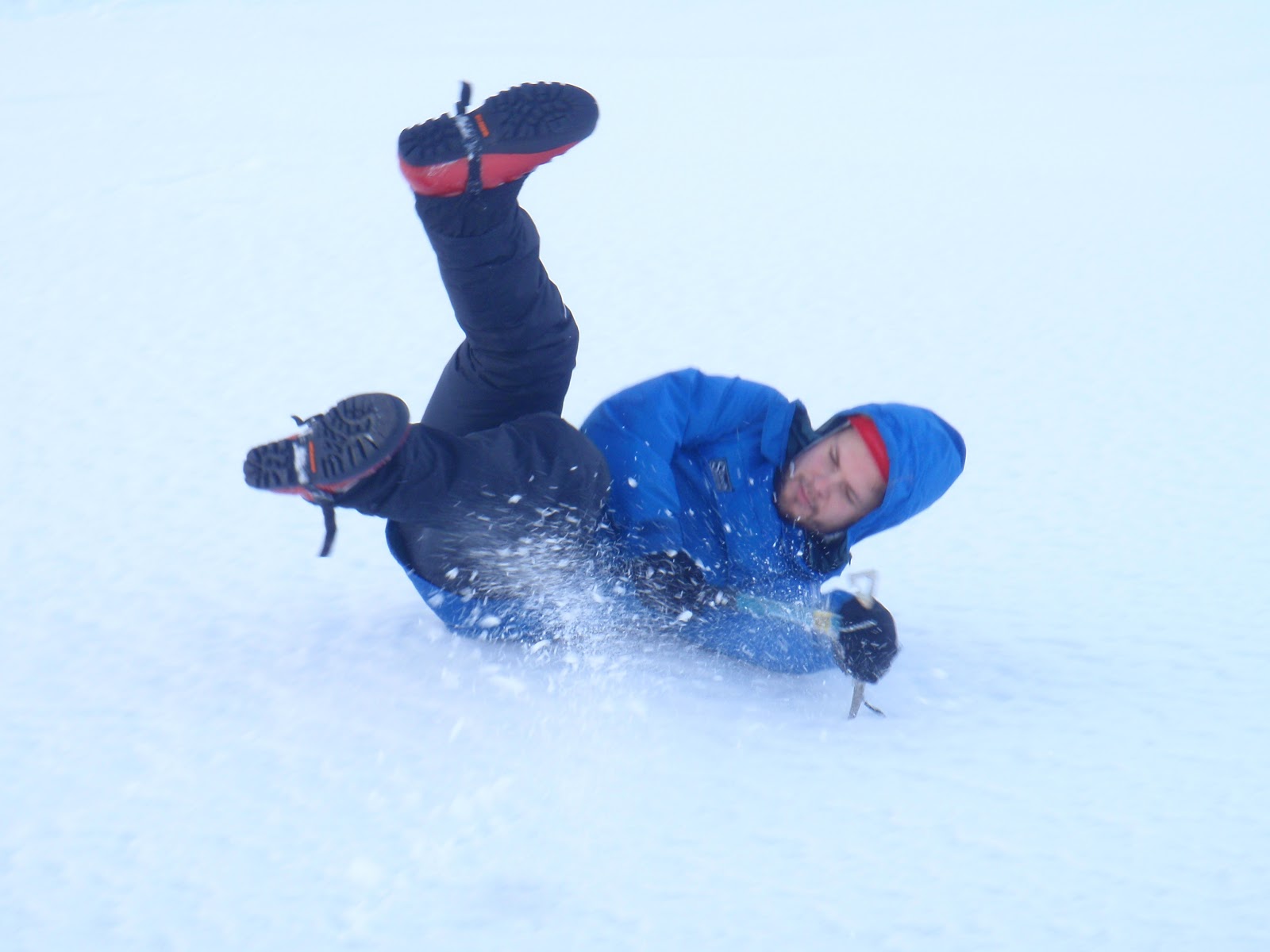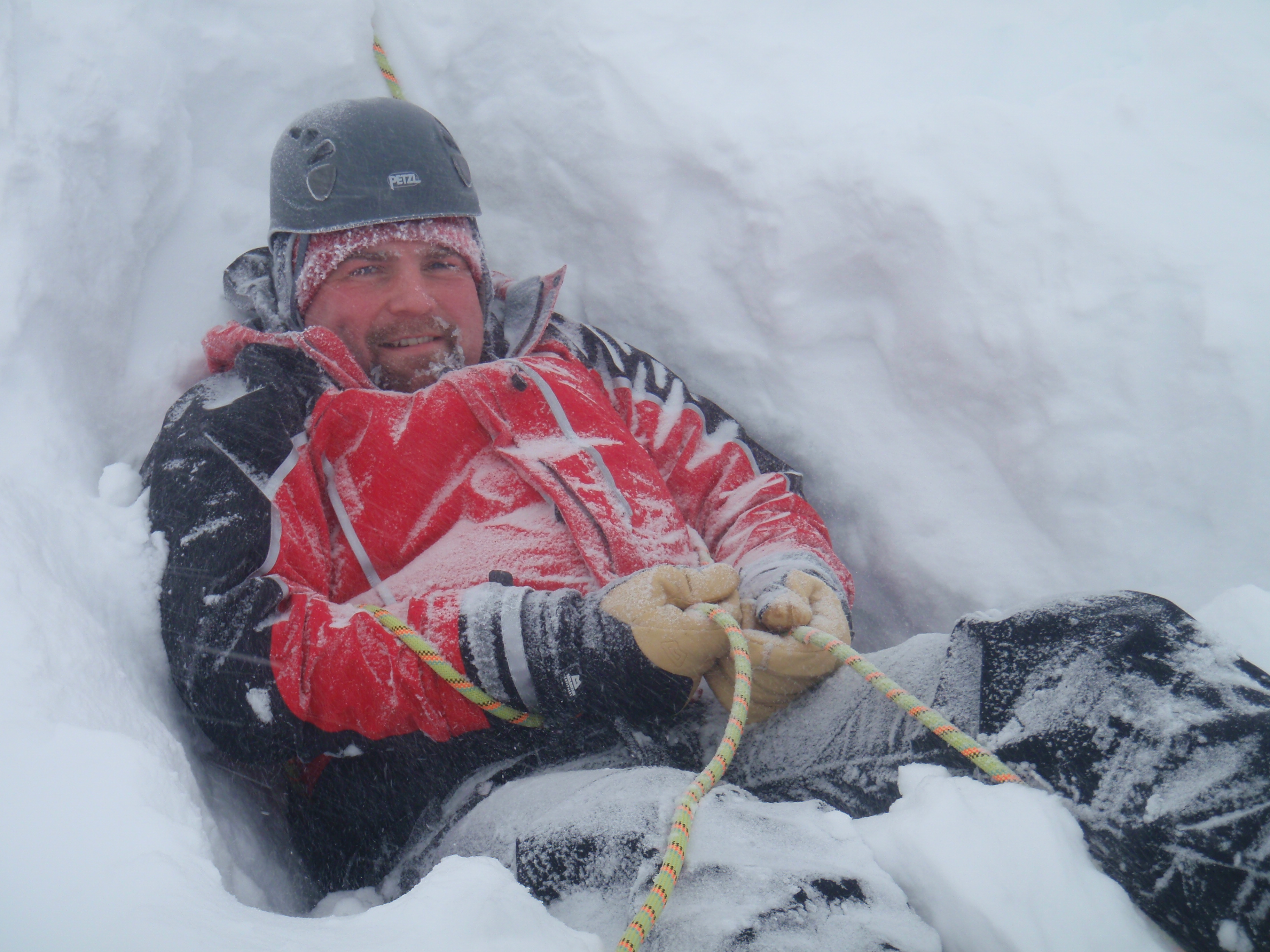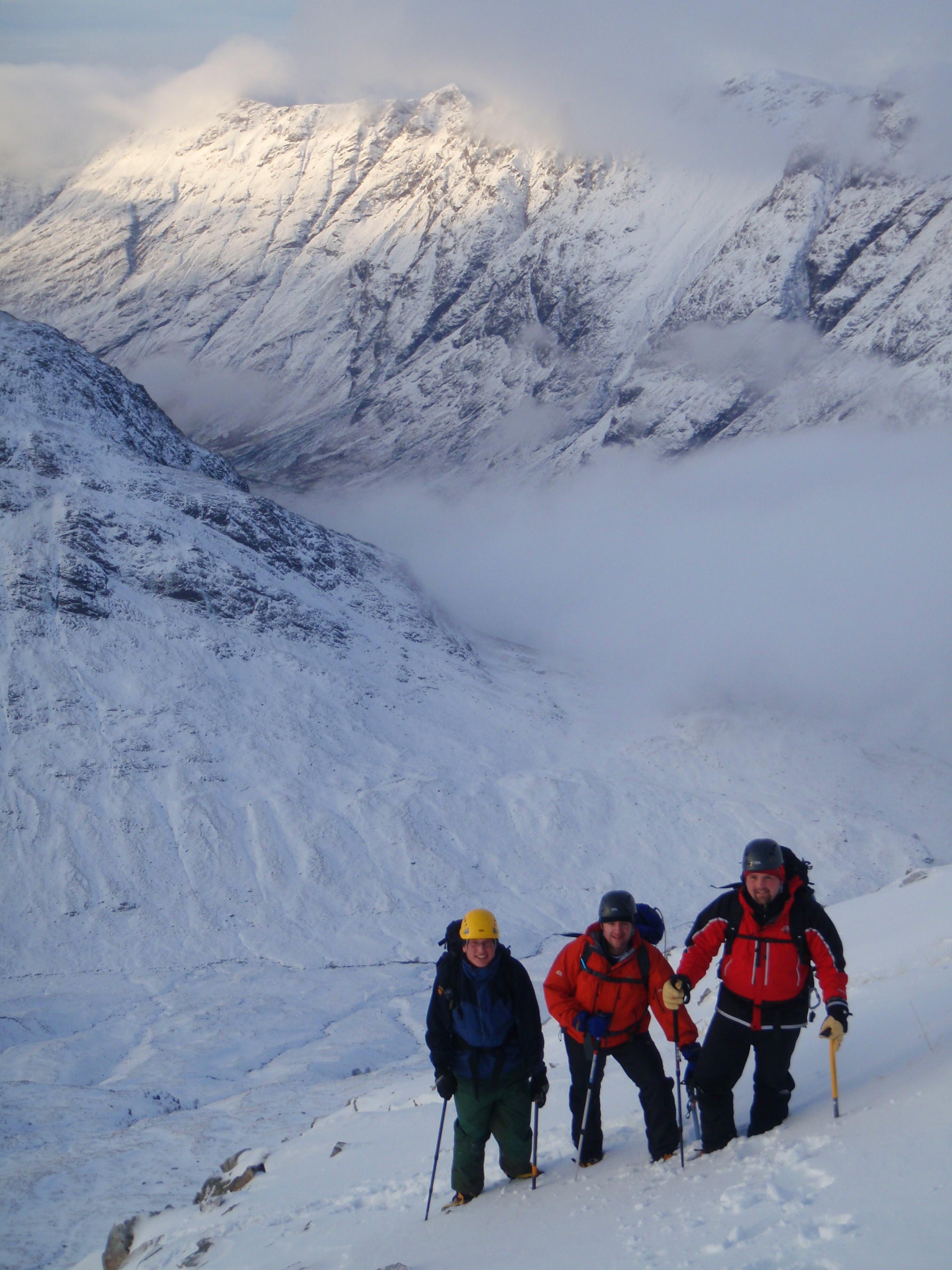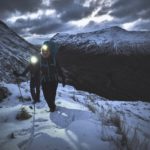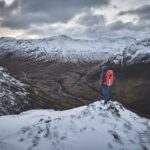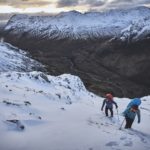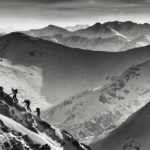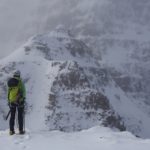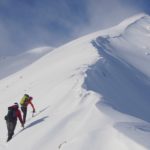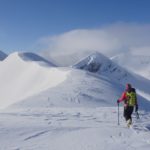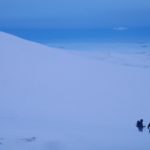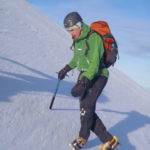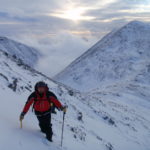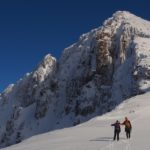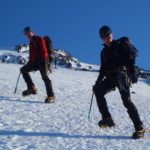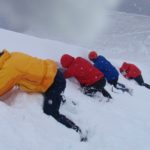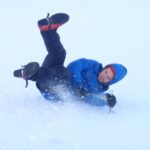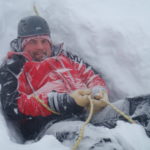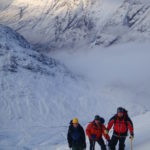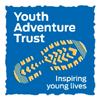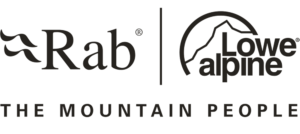Overview
We run both Private and Open Courses, during which we will cover the gateway skills you need to look after yourself and keep yourself safe in the mountains in winter. These include:
- Equipment selection and packing
- Weather and avalanche conditions; interpretation and planning together with venue choice
- Navigation
- Ice axe and crampons skills – including ice axe arrest
- Movement skills including steeper terrain
- Staying warm
- Avalanche avoidance
- Emergency procedures
All of our Private Winter Skills Courses are tailored specifically to you, offering you complete autonomy and flexibility during your time spent with us. Prior to your course, we will liaise with you to understand what level you’re currently at and what you hope to achieve – scroll down the page for details on how to arrange a private course.
Our annual Open Winter Skills Course allows you to join a group of like minded individuals to learn winter skills together. This is a fantastic and rewarding 2 day course and is always very popular – all details and booking information can be found at the bottom of this page.
Both these courses typically run on a 1:4 ratio.
Trip Suitability
If you are new to winter mountaineering having a very good level of fitness will benefit your overall enjoyment of the course. Days out in winter are physically demanding and the weather conditions can often be challenging so you’ll need to be determined!
Conditions underfoot will vary from normal rocky paths and soft fresh snow through to old bullet hard ice. The weather can vary from crisp cold blue sky days (our favorite!) to strong winds, whiteout and falling snow – challenging but exciting!
A typical day out on a winter skills course means being outside and on the move for 7-8 hours, typically from 9am to 4pm. You should expect to do between 800-1000m of ascent and descent on a normal mountain day. Individually these days may sound pretty normal but day after day they can add up, so a good level of fitness is essential.
All of our Winter Skills Courses are based in Scotland where there is a huge variety of excellent venues. There is certainly something for everyone, whatever the level or grade you’re at.
Itinerary
Our Winter Skills itinerary varies with each course. The locations that you visit will be determined by your aims as well as the weather and conditions. On the west coast of the Highlands we have a huge variety of options to choose from including mountaineering on classic mountains like Ben Nevis. A flexible approach is essential as this will give us the best chance of finding appropriate conditions.
Your Instructor will be in touch with you directly before the course and will arrange to meet you either, on the evening before if convenient, or on the morning of day 1.
This is an example of a 2 day winter skills itinerary:
Day 1
- Meet your instructor at 8:30am either at a pre-allocated café or your accommodation
- Discuss the aims and objectives of your days together
- Look at weather conditions and make a plan
- Check your personal kit
- Go mountaineering, have an amazing day and learn lots
- Head to a café for 4:30pm/5pm for tea, cake and a chat about the day
- Discuss tomorrows aims
Day 2
- Meet your instructor at 9am either at a pre-allocated café or your accommodation
- Go mountaineering, further develop on yesterday’s learning and skills, have a super day
- Head to a café for 4:30pm/5pm for tea, cake and to re-live your two day adventure
- Depart and head home
Venues that we often use in Scotland include the ski areas at Aonach Mor and Glencoe, Buachaille Etive Beag, Bidean Nam Bian, Ben Nevis and the Mamores.
Map
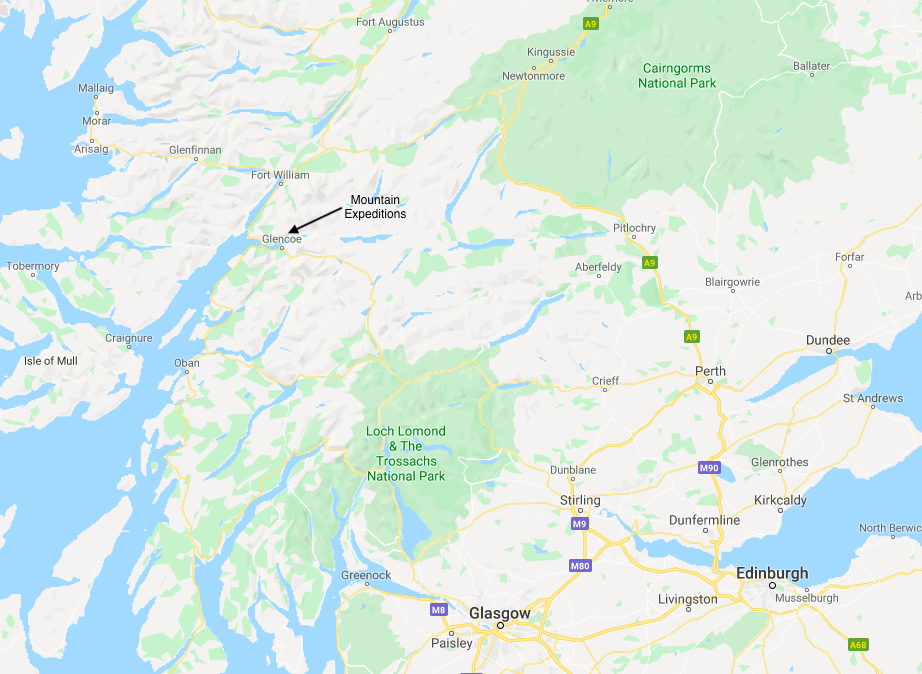
Included
When you book with Mountain Expeditions, we want you to know exactly how much the course is going to cost you, with absolutely no hidden extras or last-minute costs.
The following are included in our price:
- UK Winter Mountaineering and Climbing Instructor (WMCI or WML) – highly qualified & very experienced
- All required group technical equipment
- All mountain safety & emergency equipment
- Transfers to and from the venue*
* In some cases you may be required to also drive to the venue. Your instructor will discuss this with you the night before.
You should also refer to the Not Included section.
Not Included
The following are NOT included in our price:
- Transport to and from Glencoe
- Accommodation in the Glencoe area.
- Personal mountaineering equipment: helmet, ice axes, crampons. These items of kit are available for hire in Fort William, or we can help you choose the right ones to buy at a local climbing shop
- Packed lunches – available from the Chalaig if required
- Evening meals
- Trip insurance
Glencoe village has a small supermarket, pubs and restaurants nearby.
If you require any advice or help with any of the above, simply Contact Us.
With our Private Winter Skills Courses we are more than happy to arrange all aspects of the course: if there are things not included that you would like to be included, we can discuss the specifics with you upon booking.
Difficulty Level
All of our UK Courses & Worldwide Expeditions come with a suggested difficulty level to help you choose the correct one. For a full explanation of the Scottish Winter, Alpine and UK Rock Climbing grading systems, this blog explains them all – Grades Explained
Grading for UK Courses
With all our UK courses please refer to the Trip Suitability section for more specific details on course expectation and technical and physical levels required.
C1 – Intro Course: open to any level and ability
C2 – Intermediate Courses: previous experience of scrambling/rock climbing or winter mountaineering
C3 – Advanced Courses: previous technical summer or winter climbing experience
Grading for Worldwide Expeditions
With all our Worldwide Expeditions you should refer to the Trip Suitability section for more specific details on the expedition expectation and technical and physical levels required. If in any doubt please don’t hesitate to contact us.
Physical
A. Good basic fitness, as for UK hill walking and mountaineering. Average rucksack weight: 6-8 kg
B. Good cardio-vascular fitness which for most people requires some training, by running, hiking and perhaps some gym work. Average rucksack weight: 8-12 kg.
C. High level of fitness coupled with physical toughness and the ability to carry a heavy rucksack for long periods. Average rucksack weight: 12-18 kg.
D. As for C, but tougher. Climbs of this grade are exceptionally strenuous and some weight loss is inevitable. Train hard and arrive fit. Welcome to ask for advice if training specifically.
E. Hard physical effort at extreme altitude which requires thorough preparation based on your experience of previous trips. Comments for ‘D’ also apply. May cause long-term fatigue after the trip.
Technical
1. Low angle snow or straightforward scrambling on rocks. Ropes are not usually required. Previous climbing experience is not essential.
2. Ropes are used principally for glacier travel and low angle snow or ice slopes. Ice axe and crampon experience necessary.
3. Short, steep sections of snow or ice up to about 50 degrees. Previous snow and ice climbing experience of Scottish III/Alpine PD is essential.
4. Long, steep snow and ice slopes with short steps of very steep ice or low grade rock climbing. Good all-round climbing ability required to Scottish III/Alpine AD.
5. Very steep ice (Scottish III/IV or harder) or rock (Hard Severe or harder). Suitable for competent mountaineers who have climbed consistently at these standards.
In-country Safety

